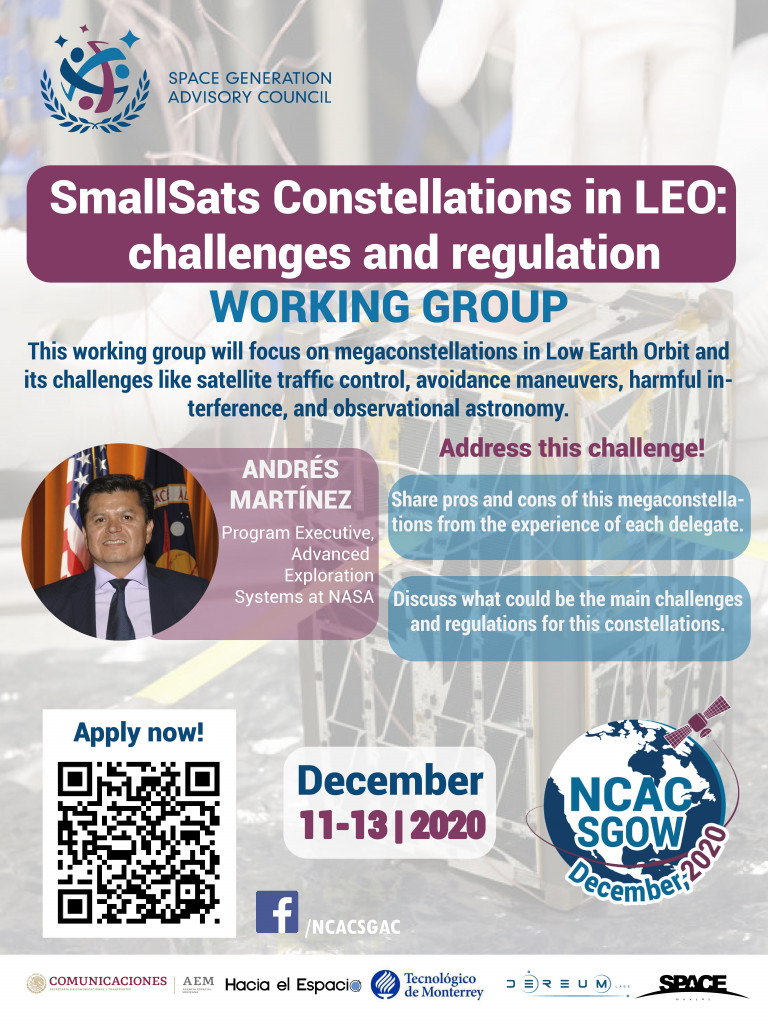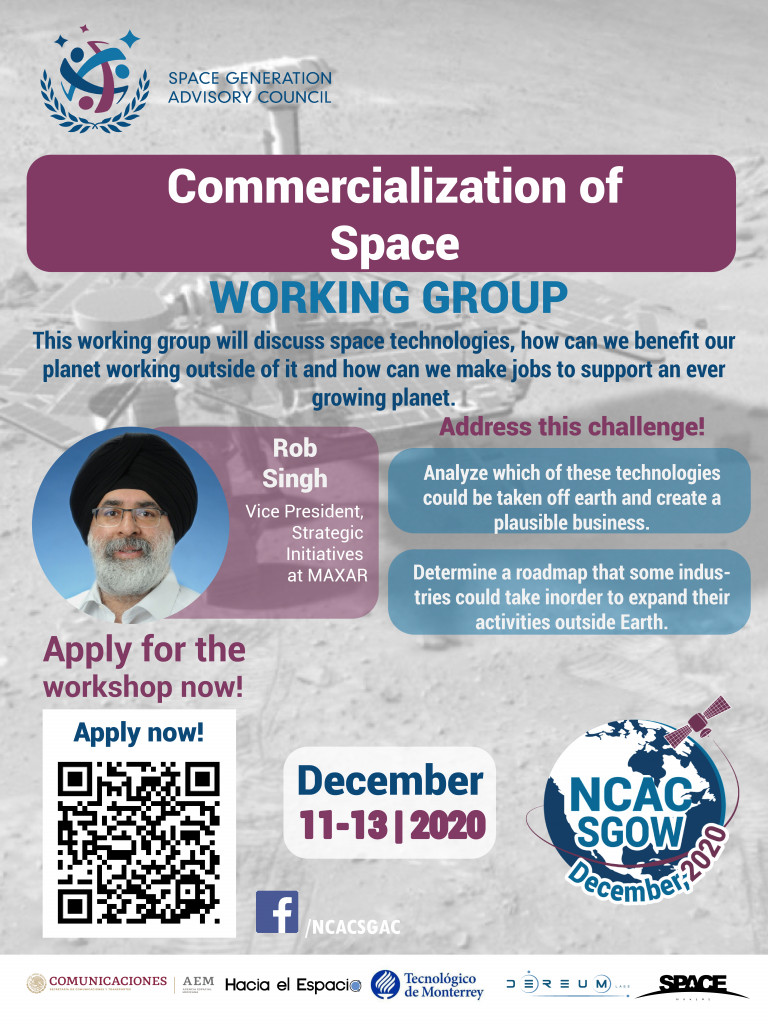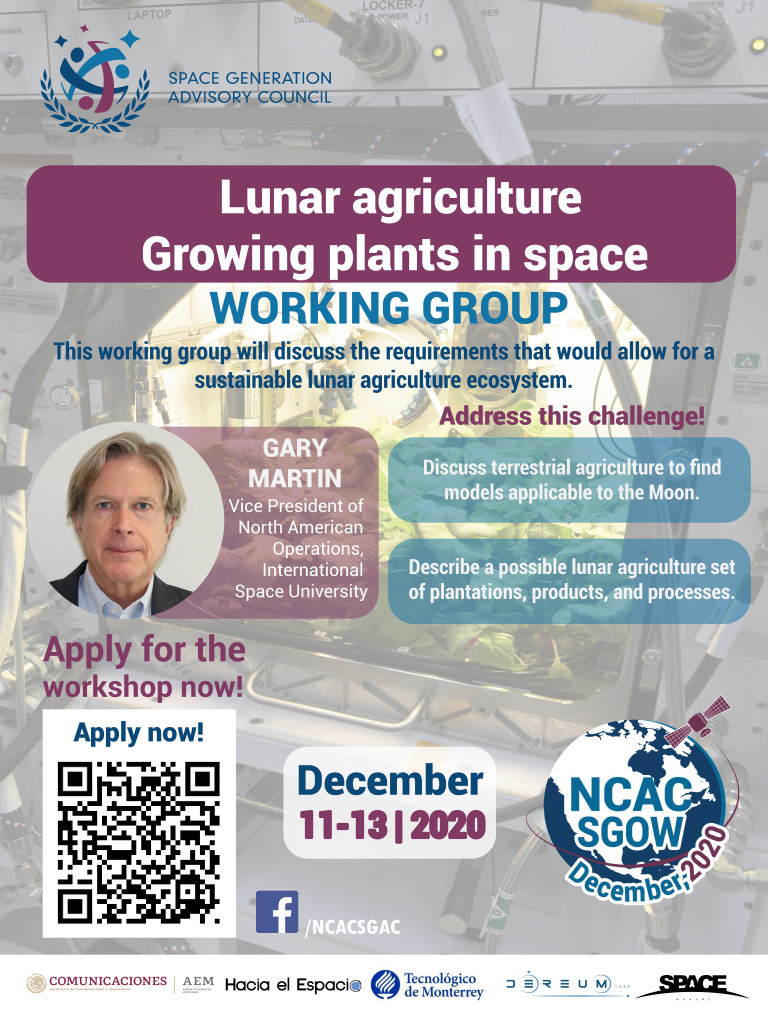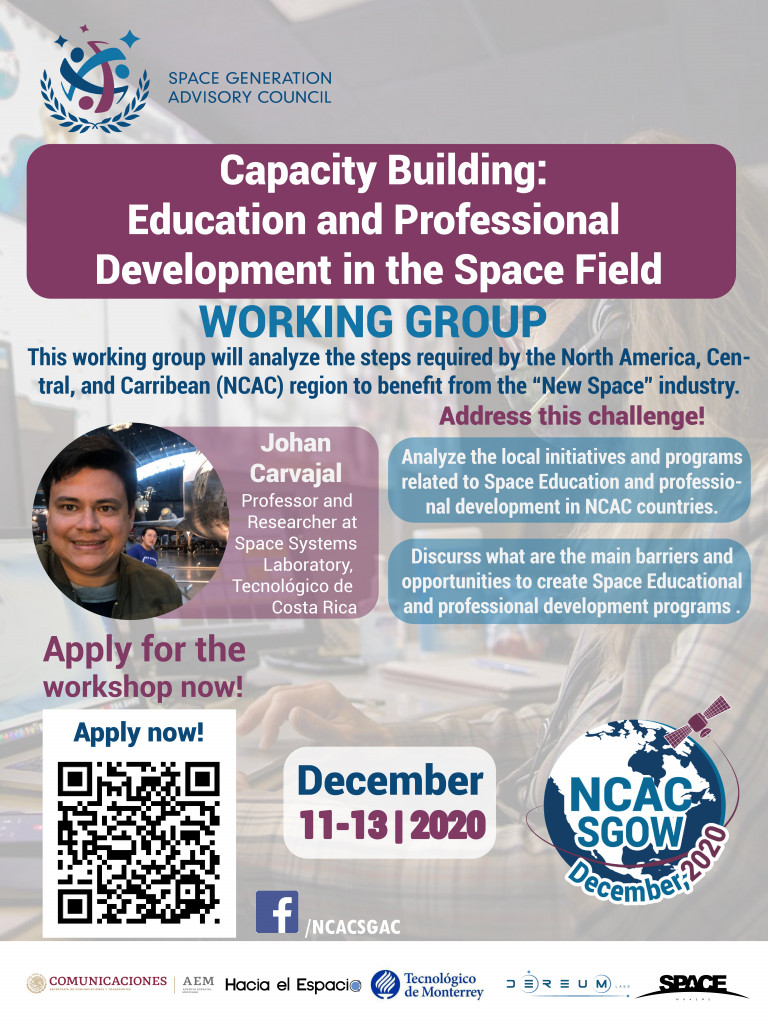Details about Working Groups coming soon.
1.- SmallSats Constellations in LEO – Challenges and regulation
One of the hottest topics in satellite these days is the design and development of several Megaconstellations in Low Earth Orbit. While a few operators have already begun launching and testing (Starlink, OneWeb), other constellations have been providing services for a couple of years (Planet).
These Megaconstellations may be very well capable of changing how cable networks and space networks work altogether; however, regulations and local operations have an impact on how they can operate. Many other challenges arise from having thousands of satellites closed to Earth: Satellite Traffic Control, avoidance maneuvers, harmful interference and observational astronomy.
2.- Commercial Exploration Technology
Space Technologies have evolved since its inception in the 1960s. During this decade Space Technology has provided tools to address the Digital Divide, support mission critical operations in deep sea or remote islands and to understand the impact of Climate Change on our planet.
While we continue to utilize such technologies to benefit Earth, many have set their sights on the Moon and other objects in the Solar System. There are resources available far away from our atmosphere that can benefit Earth. There are activities, such as heavy industry, that could be taken off the planet. It is truly a moment for gazing above and beyond to think how can we benefit our planet working outside of it and how can we make jobs to support an ever growing planet.
3.- Lunar agriculture/Growing plants in space
With revitalized international efforts toward human exploration of the Moon and Mars, evidenced with examples such as NASA’s upcoming Artemis program, humans will be required to sustain life in outer space for longer periods of time.
With NASA’s SOFIA observatory confirming water on the sunlit surface of the Moon, water distribution on the moon may not be limited to cold, shadowed places, which expands the possibilities for establishing a lunar settlement thus expanding the requirements to feed the future explorers.
This working group will discuss the requirements that would allow for a sustainable lunar agriculture ecosystem. Focus will be given to the requirements for growing plants in the lunar environment, but animal, fungi, or synthetic food products will also be discussed to meet human nutritional requirements.
4.- Capacity Building: Education and Professional Development in the Space Field
This working group will analyze the steps required by the North America, Central, and Carribean (NCAC) region to benefit from the “New Space” industry, by developing the necessary educational programs and initiatives to strengthen the local human resources; and to improve the competitiveness of the countries in the sector.






